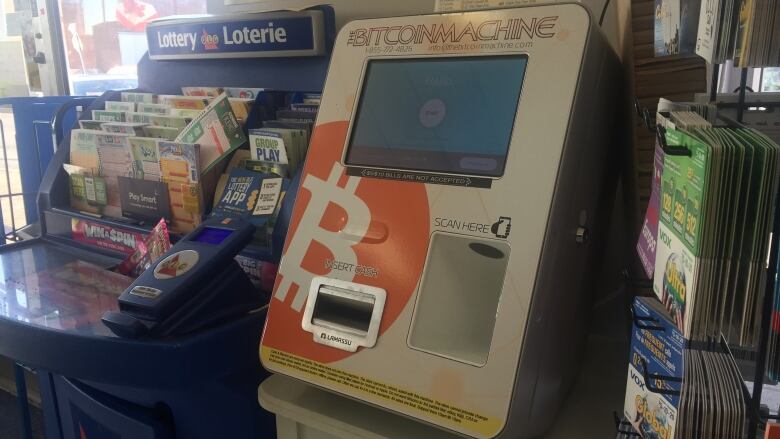'I was completely destroyed': Bitcoin scam victims lose $340K in York Region, police say
Police say tracking down fraudsters or recovering money is likely impossible

York Regional Police say dozens of victims have funnelled $340,000 in cash into Bitcoin ATMs in a scam sweeping the region.
Investigators say the machines are being used in the latest version of a Canada Revenue Agency (CRA) scam,in which fraudsters posing as tax collectors or police officers threaten to arrest potential victims over tax issues.
The victims are then advised to useATMswhich convert the cash intoBitcoins: the digital, decentralizedcryptocurrency, which currently trades for around $9,200.
- 'Big game changer': CRA phone scam revs up as fraudsters start calling cellphones
- Finally! A primer on cryptocurrency (bitcoin) you will actually get, promise
- Bitcoin surges to new high on reports software 'fork' suspended
Since April, police say 45 people have been defrauded in York Region, including Linda, who did not disclose her full name during a press conference held by York Regional Police in Richmond Hill on Wednesday.
'They're very convincing'
Linda said the fraudsters called her cell phone and advised her that she was under investigation for tax fraud and that if she didn't resolve the issue immediately, she'd be arrested.
"They're very convincing and they keep at it," Linda said. "They say there's a warrant for your arrest, and York Regional Police will be giving you a call shortly."

At first, Linda said she suspected the call was illegitimate, but she was eventually worn down by the tactics used by the fraudsters.
She told reporters they knew some of her personal information, and one of the caller's numbers showed up as "York Regional Police" on her cell phone.
Eventually, Linda was convinced to withdraw $12,000 from her bank and take it to a convenience store in Richmond Hill, where she deposited the money into a Bitcoin ATM. The machine converted the cash to Bitcoin and transferred the funds to the caller.
Linda said she'd never heard of Bitcoin before receiving the call.
"They made me believe that it was a machine used by Revenue Canada to transfer money quickly," she saidat thenews conference outside the store.
The whole ordeal lasted around four hours, she said, after which she began to realize what had happened.
"'Stupid,' you say, 'How could you fall for this?' I did, and I feel embarrassed about it," Linda said. "I was completely destroyed."
Tracking money impossible
Police say Bitcoin ATMs arelegitimate, however, the nature of the currency means that once the conversion is made, following the money becomes practically impossible.

"There really isn't anything at this point, it's a one way street," said York Regional PoliceDet. Const. Rob Vingerhoets.
"The only way to recover it would be for the person who received the Bitcoin to send them back If they're a criminal, they're not likely to do that."
Investigatorsbelieve the calls are being made by overseas organized crime outfits, further complicating efforts to identify the scammers.
Preventing future success
With little ability to track the fraudsters or recover the money, police say public awareness is the best strategy to combat the scam.
"Our main strategy, the point of being here today was to stop people from becoming victims in the first place," Vingerhoets said.
Police have also placed flyers near the ATMs advising potential victims that CRA and other "legitimate agencies" do not accept Bitcoins as payment.
Linda too said she decidedto tell her story as a service to other people who may be targeted in the scam.
"Having to tell my story is kind of painful," she said. "But I believe that if I share my story, perhaps I can prevent other people from being victims."












_(720p).jpg)


 OFFICIAL HD MUSIC VIDEO.jpg)
.jpg)



























































































